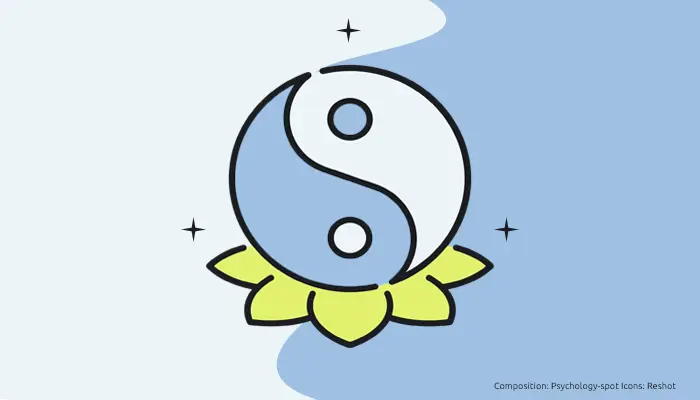
Known in the West for the title of respect we refer to him, which is derived from Kong Fu Zi (Kong, the Wise), his real name was Kong Zi. Confucius was a social theorist and founder of an ethical system, but above all a great philosopher whose teachings resonate over time.
Who was Confucius?
With 20 years worked in the state barns and looked after goats while studying, something he did throughout his life. Then he worked for the administration of the State of Lu, as educator and politician, becoming Minister of Justice at 52 years of age. During this period, Confucius promoted several reforms that led to an impartial administration of justice. However, he resigned from his office because he didn’t agree with the policy followed by the prince, and devoted himself fully to teaching.
In fact, his disciples created what we know today as Confucianism. For this method it is fundamental to be in tune with the universe, for which we need to study and look inside ourselves. That is, we can only be in balance if we perform an exercise of introspection that leads us to a full knowledge of ourselves. Therefore, many of the thoughts of Confucius revolve around introspection and the need to know each other.
Confucius quotes
Nothing human was alien to Confucius. His phrases and maxims can become guides that illuminate our behavior, especially when we go through difficult stages. Other of his thoughts are real moral compasses.
1. We have two lives, and the second begins when we realize that we only have one
2. Roads were made for journeys not destinations
Among all the thoughts of Confucius, perhaps these are two of the deepest. The Chinese philosopher encourages us to embrace our mortality, realize that we only have one life and we’re the ones who decide how to live it. It also encourages us to be fully present, not with our eyes constantly set on a future that we don’t know if it will come. In fact, he also said that “beauty is everywhere, but not everyone is able to see it”, perhaps because we are too busy or worried.
3. If you hate a person, then you’re defeated by that person
4. Before you embark on a journey of revenge, dig two graves
5. Forget injuries, never forget kindnesses
For Confucius, anger, resentment and the desire for revenge are feelings that consume us. It’s like taking poison waiting for the one who dies to be the other. Therefore, he considered that when we succumb to these emotions we actually give our power to the other and become his victim.
6. No matter how slowly you go, as long as you do not stop
7. The man who moves a mountain begins by carrying away small stones
8. A journey of a thousand miles begins with a single step
These thoughts of Confucius remind us that step by step we go far away. They encourage us to take the first step, even if it’s small and frightening, as well as reminding us that every great project demands sacrifices.
9. If you make a mistake and do not correct it, this is called a mistake
10. If you know what you have to do and don’ do it, you will be worse off than before
For Confucius, mistakes are part of learning, so there is nothing wrong with them, as long as we learn the lesson and try to correct them. For this philosopher, the truly dramatic thing is to realize our failures and not try to solve them.
11. What the superior man seeks is in himself; what the small man seeks is in others
12. Learning without thought is labor lost; thought without learning is perilous
Confucius promulgated introspection, which means that we must look for the answers within us. He alerts us to the danger of adapting to the responses of others and assuming their points of view without reflecting.
13. Teach only to those who seek knowledge after having discovered their ignorance
14. By three methods we may learn wisdom: First, by reflection, which is noblest; second is by imitation, which is easiest; and third by experience, which is the bitterest
These Confucius quotes, which recall the basic principles of Taoism and Buddhism, remind us that the teacher arrives when the apprentice is ready. It means that if the person is not receptive and recognizes that he needs help, our words and actions will fall on deaf ears.
15. Do not pretend to extinguish a fire with fire or remediate a flood with water
16. It is not weeds that choke the good seed, but the negligence of the peasant
It may seem like a contradiction or even madness, but at psychological level it happens frequently, we respond with anger to anger and violence to violence. Confucius encourages us to get out of that vicious circle and not to look for guilty people who act as scapegoats. but to think what dose of responsibility we have and how we can change the situation from a more rational perspective.
17. Respect yourself and the others will respect you
18. Do not impose on others what you yourself do not desire
19. A man should demand much from himself, but little from others
These thoughts of Confucius can be summed up in one maxim: don’t do to others what you don’t like to be done to you. If you want respect, you have to start by respecting yourself and respecting others. You can’t be extremely forgiving with yourself and pretend so much from the others. On the contrary, to avoid disappointment, it is best to focus on personal growth and reduce expectations about the others since these are often sources of conflict and disappointment.
20. He who asks a question is a fool for five minutes; he who does not ask a question remains a fool forever
Many times we avoid asking for fear of appearing incompetent and ignorant, but it’s even worse to hide ignorance and keep dragging it throughout life. That is why Confucius encourages to ask what worries us or we do not know.
21. A man would be ashamed should his deeds not match his words
This maxim of Confucius encourages us to reflect on the distance that may exist between our words and actions. In fact, when the distance between what we say and what we do is too great, we can fall into hypocrisy, giving moral lessons that we do not follow.
22. Your life is the result of your thoughts
Although it may seem exaggerated, the truth is that our life is the result of the thought patterns we apply day after day. These thought patterns can generate limiting beliefs that prevent us from reaching certain goals or become recurring ideas that affect our well-being. On the contrary, positive thought patterns give rise to adaptive behaviors that allow us to live in a more balanced way.
23. Do not use a cannon to kill a mosquito
Sometimes we react disproportionately to what happens to us, so that we only make things worse or waste energy uselessly. This thought of Confucius encourages us to dose our energy and respond in a measured way to each situation.
24. Real knowledge is to know the extent of one’s ignorance
25. The beginning of wisdom is to call things by their proper names
Wisdom is not synonymous with intelligence. We know it. To be wise, according to Confucius, we must first be aware of the dimension of our ignorance. Only when we recognize that we need to learn, do we open our minds to other ideas or ways of doing things. That level of self-knowledge allows us to stop hiding behind excuses and finally call things by their names.



